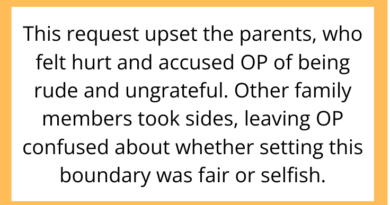Am I the Jerk for Not Giving My Wedding Plus-One to My Sister’s New Boyfriend?
Weddings are beautiful celebrations of love, but planning them can be a minefield of decisions, expectations, and family politics. One of the most debated issues? The guest list.
This AITAH scenario explores what happens when family ties clash with personal boundaries. When OP chooses not to offer a plus-one to her sister’s brand-new boyfriend, all hell breaks loose—sparking a heated family feud that ends with accusations, tears, and some serious second-guessing.
The Story: One Invite, One Sister, One Problem
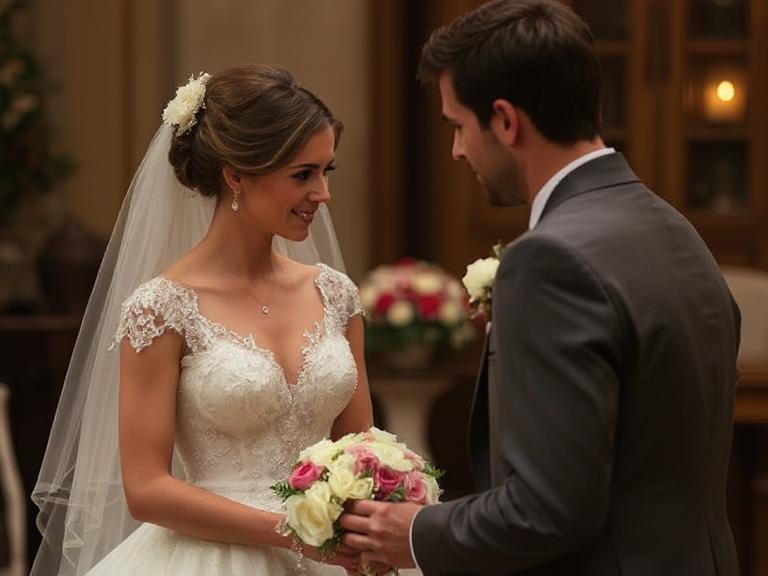
The Original Poster (OP) is a 27-year-old bride-to-be planning a mid-sized wedding. She and her fiancé have decided to keep the guest list tight—both for budget reasons and because they want an intimate ceremony.
Everyone invited was told that plus-ones would only be extended to long-term partners—those dating at least a year. Most guests, including OP’s friends and cousins, understood and respected that rule.
Except one person: her older sister.
OP’s sister has been dating someone for just two months. Despite the short relationship, she insists her boyfriend be included as a plus-one. She argues that she doesn’t want to attend alone and that family should get “priority exceptions.”
When OP declined, the sister blew up. She accused OP of being unsupportive, playing favorites, and trying to embarrass her by making her come “solo.” Their mom got involved and asked OP to “just make it easier for everyone.”
Now, OP is wondering: Am I the jerk for sticking to my plus-one rule and saying no to my sister’s new boyfriend?
Why This Issue Strikes a Chord: Boundaries vs. Expectations

Wedding Guest Lists Are Already a War Zone
No matter the size, guest lists are often one of the most contentious parts of wedding planning. People have expectations—who should be invited, who should get a plus-one, and who should sit where.
In OP’s case, she created a clear, consistent rule: only long-term partners would be extended a plus-one. This wasn’t an attack—it was a boundary.
But when boundaries conflict with expectations, especially within families, things can get messy fast.
The Entitlement Trap: “But I’m Family!”

One of the strongest emotional triggers in family dynamics is the idea of entitlement based on relationship. OP’s sister believed she deserved an exception—not because of the rule, but because she’s the bride’s sibling.
But fairness isn’t about who you are. It’s about applying rules evenly. If OP had made an exception, other guests would’ve rightly felt slighted.
And weddings aren’t about appeasing everyone—they’re about celebrating the couple.
The Importance of Consistency in Boundaries
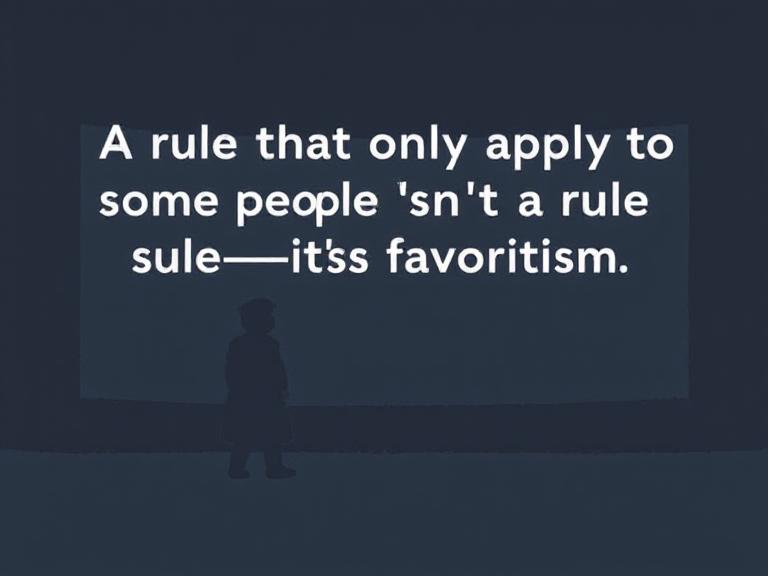
A Rule Is Only Fair If It Applies to Everyone
OP didn’t single anyone out. She didn’t say, “No, your boyfriend isn’t important.” She said, “The rule is one year of dating. That’s the line.”
If you start making exceptions for one person, the entire rule falls apart. Suddenly, you’re justifying one guest’s short-term relationship over another’s, and it becomes personal.
Consistency isn’t cold—it’s respectful.
Boundaries Aren’t Meant to Punish

What OP’s sister failed to understand is that a boundary is not a punishment. It’s a choice made for emotional and logistical clarity.
The rule wasn’t about disliking the boyfriend. It was about maintaining the spirit of a small, meaningful wedding. Guests are there to witness a deeply personal moment—not to make someone else feel validated in a new relationship.
The “You’re Embarrassing Me” Argument: A Red Flag?
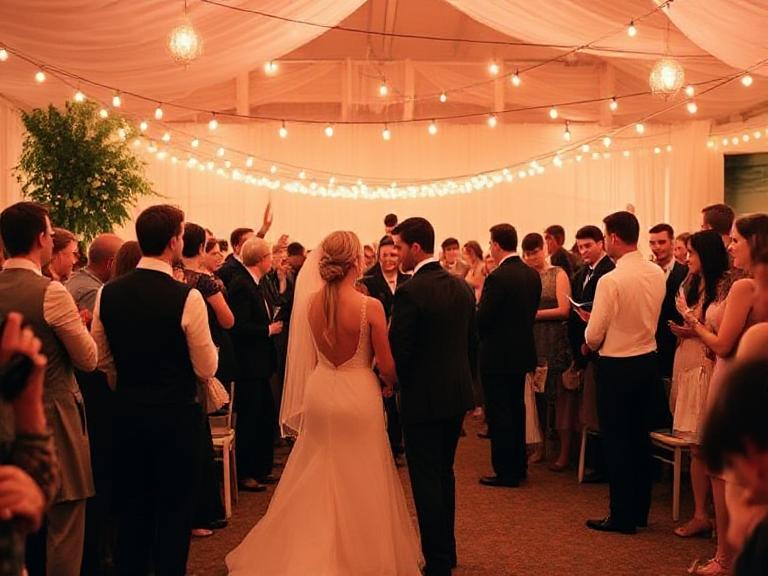
When OP’s sister said she didn’t want to show up alone, the implication was that being single—or not having her partner present—was embarrassing.
That’s a societal problem, not a wedding planning one.
No one should feel ashamed to attend a wedding solo. If someone bases their self-worth on their relationship status at an event, that’s a personal insecurity—not the bride’s burden to fix.
What the AITAH Community Said: Not the Jerk
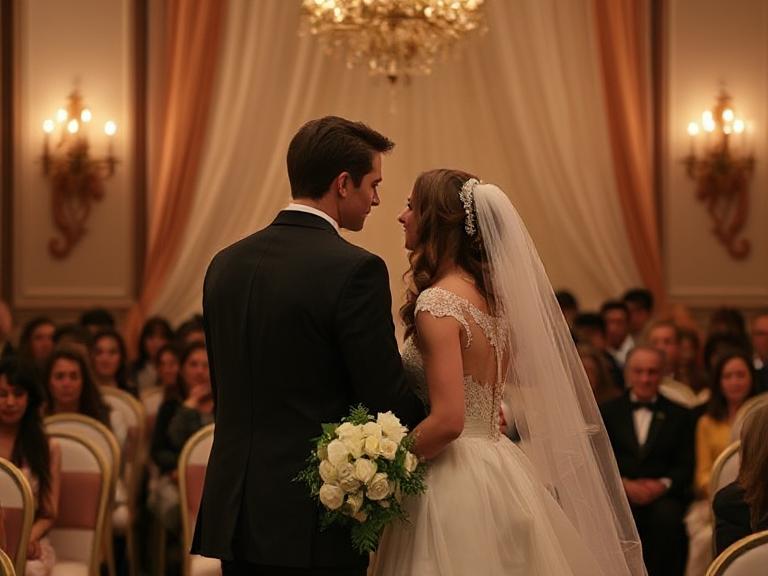
Reddit weighed in with thousands of responses—and the verdict was loud and clear: OP is not the jerk.
Top upvoted comments included:
-
“You set a boundary, and you stuck to it. Your sister’s insecurity isn’t your responsibility.”
-
“If everyone else respects the rule, your sister can too. Two months isn’t a serious commitment.”
-
“Letting her bring a guy she barely knows to one of the most important days of your life? That’s risky.”
The general consensus was that boundaries protect the couple, the event, and the emotional health of everyone involved.
Lessons for Wedding Planning (and Beyond)

1. Set Clear Expectations Early
OP’s mistake wasn’t the rule—it was underestimating how people would react to it. Always be upfront about boundaries, and expect some pushback.
But once you’ve communicated clearly, you’re not responsible for other people’s reactions.
2. Don’t Be Afraid to Say No to Family
It’s often hardest to say no to those closest to us. But family should not be exempt from respecting your boundaries—especially when the decision involves your mental well-being and financial planning.
3. Prioritize Peace, Not People-Pleasing
Your wedding is your day. The goal is not to appease every guest. The goal is to celebrate your love without emotional landmines.
Conclusion: You’re Not the Jerk for Protecting Your Day

OP’s story is a classic example of modern wedding dilemmas—where logistics, emotions, and family dynamics collide.
But here’s the bottom line: You’re allowed to draw a line. You’re allowed to say “this is my boundary.” And you’re allowed to protect your peace, even if others don’t understand.
This wasn’t about being controlling. It was about honoring a commitment—to fairness, to consistency, and most importantly, to yourself.


